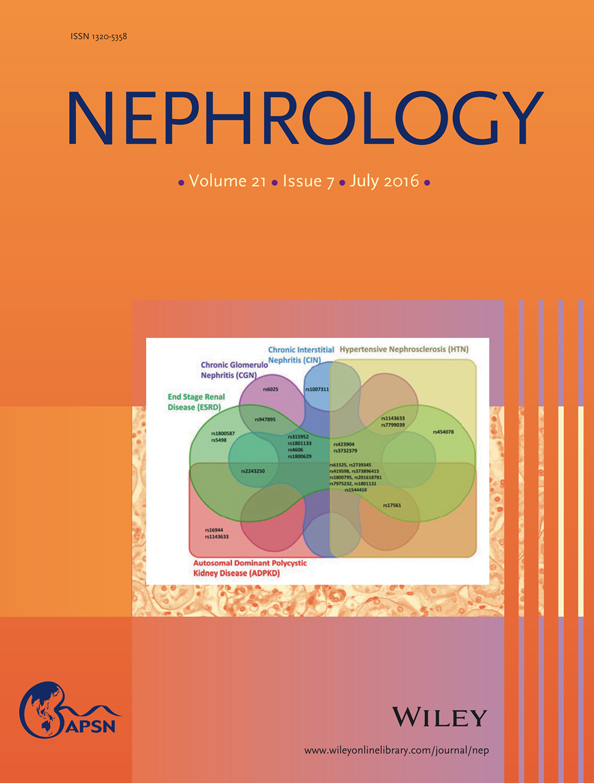Prediction of susceptible biomarkers for end stage renal disease among North Indians
Abstract
Aim
Involvement of pro-inflammatory genes has been correlated with basic kidney diseases and end stage renal disease (ESRD). However, results at odds were often noted from such independent association studies. This study proposes a genome wide analysis approach to predict ESRD risk associated genes.
Methods
We included 42 single nucleotide polymorphisms (SNPs) showing association among north Indian ESRD cases and controls. ESRD cases comprised chronic glomerulonephritis (CGN), chronic interstitial nephritis (CIN), hypertension (HTN) and autosomal dominant polycystic kidney disease (ADPKD). Genotyping data obtained from our prior published reports were compared with Genome-Wide Association Studies (GWAS) SNPs retrieved from HapMap and GWASCentral databases using R-statistical package SNPAssoc. Linkage disequilibrium (LD), gene–gene interaction, classification and regression tree (CART) and pathway analysis were carried out in the present study supplemented with IL-6 and TNF-α levels estimation using enzyme linked immunosorbent assay (ELISA).
Results
Comparison of genotyping data with GWAS SNPs revealed significant associations for interleukin (IL)1-RN, IL-6, MTHFR, tumour necrosis factor-α (TNF-α) and CCR3 genes with ESRD. Nine SNPs were commonly associated with CGN, CIN, HTN, ADPKD and ESRD. LD (D = 0.9) and gene-gene interaction (P = 0.0002) analyses revealed significant associations for IL-6 and TNF-α genes. In a consistent manner, CART analysis and functional analysis servers predict predisposing effects for TNF-α and IL-6 with ESRD. Finally, higher body circulating levels were observed for mutant TNF-α and IL-6 alleles among ESRD.
Conclusion
The study indicates significance for IL-6 and TNF-α gene with basic kidney diseases and ESRD. Extensive statistical tests, pathway analysis and functional assays also reflect attenuated level of significance for these SNPs. In future these may be brought from bench side to clinical practice as diagnostic biomarkers upon external and prospective replication and confirmation among other cohorts.




